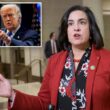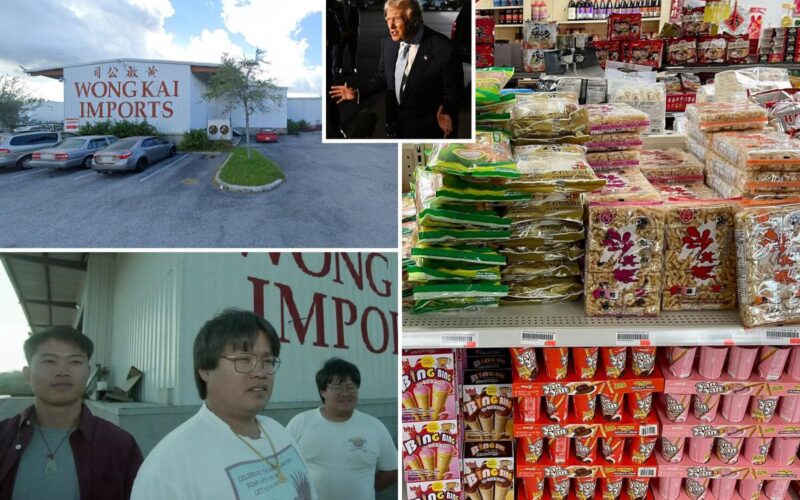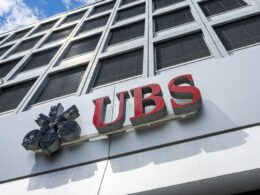A grocery store that has served a Florida community for more than four decades is on the brink of closure because of tariffs, according to the owner, who voted for President Trump in 2024.
John Wong, who co-founded Wong Kai Imports with his two brothers after the family immigrated to the US from Hong Kong, told NPR that Trump’s tariffs have forced him to raise prices on goods by as much as 35%.
He said his immigrant family, which managed to make a living and thrive in its adopted country by starting a successful business in the coastal town of Bradenton, Fla., near Tampa is facing an uncertain future.
“Is that American dream? I don’t think so,” Wong lamented.
Wong, who voted for Trump because he thought that lead to lower prices, said he has had customers begging him not to close his supermarket, which imports authentic Asian cooking essentials.
“I talked to a lot of customers. They told me, ‘Mr. Wong, don’t close,’” the businessman told NPR.
“I said, ‘I’ll try, but it’s hard.’”
The Post could not immediately reach Wong for comment.
A White House spokesperson defended Trump’s tariff policies.
“The Administration has consistently maintained that the cost of tariffs will ultimately be paid by the foreign exporters who rely on access to the American economy, the world’s biggest and best consumer market,” a White House spokesperson told The Post on Monday.
“As tariffs secure new trade deals and trillions in investments to make and hire in America, the Administration is simultaneously implementing a pro-growth agenda of tax cuts, deregulation, and energy abundance for big and small businesses alike to thrive again as they did during President Trump’s first term.”
Last week, the Trump administration announced it would eliminate tariffs on coffee, bananas, other food imports and select textile products from four Latin American countries in a bid to lower prices for American consumers.
But Wong’s products come from other parts of the world — like China, the Philippines, Thailand and Vietnam — and the grocer says he has had trouble keeping prices down in the face of levies on those countries.
“All the suppliers, they’re going up 35% across the board. And what are you going to do? I mean, nothing we can do,” he told NPR.
The cost of a popular brand of sauce for spicy mapo-style tofu doubled over the past year, Wong said.
“It came in at $2.75 last year … then it went up to $3.95 … yesterday it came in at $5,” he was quoted as saying. “I mean, it doesn’t make any sense.”
Some of Wong’s frequent customers lamented the prospect of the grocery store’s closure.
Marilyn McKibben told NPR that she shops at the store for everything from sampalok, rice and vegetables — ingredients that she uses to cook Filipino soup sinigang.
“It’s very convenient on me, you know? That’s why I’m so sad,” she told NPR.
This year has seen the Trump administration dramatically expanded its tariff regime, impacting key Asian trading partners and adding new layers of duties that pushed up import costs for retailers like Wong.
After months of fluctuations, US tariffs on certain Chinese products stand around 45%. That’s after Trump recently lowered a specific levy tied to the US fight against Chinese fentanyl.
Vietnamese goods are currently subject to a 20% reciprocal levy, though certain products would qualify for a zero-tariff rate under a new framework agreement the two countries are finalizing.
As part of that deal, Vietnam has agreed to eliminate tariffs on more than 99% of US exports.
Thailand faces a similar structure, with a 19% reciprocal tariff in place and limited exemptions for select imports.
Bangkok has committed to phasing out tariffs on 99% of American goods as the Trump administration has moved to reduce or cut its current 19% levy on Thai goods.
Imports from the Philippines are subject to a 19% reciprocal tariff, too.








